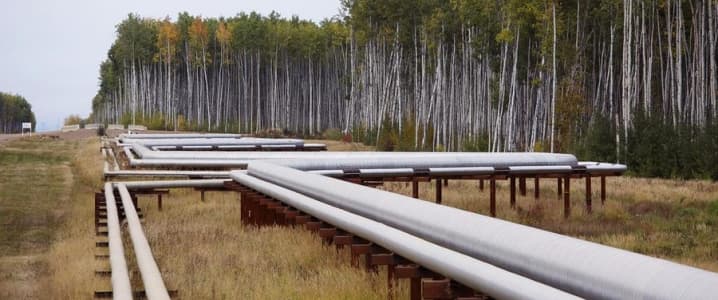Canadian oil and gas drillers are moving their rigs to the United States in response to greater demand for their service there and an investment climate at home that is, according to industry insiders, only making their lives harder.
In a recent story for The Globe and Mail, Dan Healing quotes a few executives from drilling companies who say they’re taking rigs to the Permian in Texas, and the exodus will likely intensify, even if not all drillers are too comfortable with the move so far to the south.
One of these executives, Trinidad Drilling’s CEO Brent Conway, put it in simple terms: "We've raised taxes, we're increasing costs because of labour laws that are changing, we aren't building pipelines and we can't get federal or provincial governments to do anything to help us."
Meanwhile in the Lower 48, drillers are getting closer to the 10-million-bpd mark by the day, despite warnings that they might “drill themselves into the ground” if they don’t rein in production growth. These words, spoken last year by Continental Resources’ Harold Hamm, rang out across the industry when benchmarks were just beginning to recover. But now, with Brent still very close to $70 a barrel and WTI enjoying a lift to $66, it’s easy to forget them, so shale boomers are drilling and hedging their future production at the higher prices. For them, life seems to be good.
For Canadian drillers, not so much. A lack of pipeline capacity seems to be the most pressing problem. It is not a new problem. It has been around for years, and even in 2015, Canadian media reported warnings that the discount at which Canadian crude trades to West Texas Intermediate will only widen if no new pipelines are built, and this will hurt the performance of the local oil industry. Related: The Biggest Threat To U.S. Oil Exports
Things haven’t changed for the better since then. Keystone XL has not yet received a final investment decision as doubts persist about it being economical, and environmental opposition remains strong. Trans Mountain’s expansion — a project that the federal government of Justin Trudeau approved last year — is also far from certain as the government of British Columbia has put its foot down, vowing to do whatever it takes to shelve the project forever.
Western Canadian Select (WCS) is currently trailing WTI prices by a discount of more than $30 a barrel. That’s a very wide gap, and even PM Trudeau seems to be aware of it because at a recent town hall meeting in Edmonton, he said that Canadian crude needs new markets and therefore needs the Trans Mountain expansion to reach the coast of British Columbia. Yet there was no cheer at the meeting. Opposition to the project, to all pipeline projects in Canada, is riding the high wave of saving the planet, oblivious to questions like where the more than 100,000 people now working in oil and gas in Alberta alone are going to go and what is going to replace the industry’s contribution to the provincial and federal GDP.
This contribution may not be 50 percent, as it is in much more oil-dependent economies, but it is there. Until the pipeline problem is solved, more drillers will leave for the Permian and the rigs, according to the industry executives that spoke to The Globe and Mail, may never come back.
By Irina Slav for Oilprice.com
ADVERTISEMENT
More Top Reads From Oilprice.com:
- Turkey’s Unlikely Energy Allies
- Are Canadian Oil Prices Set To Rebound?
- The Oil Market Is Already Balanced


















